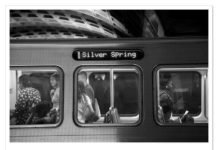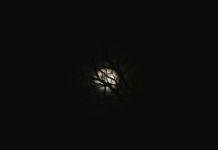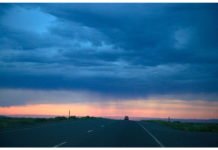
(사진출처 : 네이버지식백과)
림 진 강
북쪽 남쪽
거기 푸른 두 기슭을
적시며 적시며 흐르는 강
아, 림진강!
한낮의 폭양아래
눈이 시리게 번쩍이던 것은
아프게 아프게
이 가슴 적시던 것은
정녕 물이던가,
물빛이던가…
아니었다
아니었다
그것은 물이 아니었다
물빛이 아니었다
내가 딛고선 여기 북쪽
림한리 관산마을 뫼잔등에서
저 강너머 남쪽 어둔산기슭은
손 내밀면 닿을 듯 지척인데
아, 장장 근 반세기를
우리 오가지 못하거니
이 강을 묶어버린
저 철조망의 버얼건 녹은
가시철망에 찢겨 흘리는 이 강의 피인가,
아니면 강 하나새로 헤어져
다시 못 만나는 여기 두 기슭에 사는
그 혈육들이 흘리는 피눈물인가
오, 원한이 흐르는 림진강!
증오가 꿈틀거리는 림진강!
그리하여 저 남쪽
어둔산이며 심학산너머로
저렇듯 묵묵히 솟아있는 북한산이며
여기 북녘땅의 송악산메부리도
천인공노할 그 세기적인 원한,
세기적인 증오속에 굳어져버린
이 나라의 틀어쥔 주먹이런듯
저렇게 구름장 꿰지르고
우뚝 솟았으려니
물빛이 아닌
우리의 가슴가슴을
아픔으로 저미는 칼,
서느러운 칼빛
우리 이제 통일 장검으로
너를 비껴들고
이 기슭을 묶어버린 저 철조망이며
가증스러운 분열주의자들을
단칼에 베여내리라,
이 지구촌에서
시대의 력사에서
아예 베여내리라
영영 베어내리라
그때
아 그때 너는 비로소
칼이 아닌 참강이 되어
여기 관산마을을 다녀갈
저 어둔산기슭 사람들을 실어나르는
그 꿈같은 통일의 나루배 떠밀어주며
기쁨에 겨워 흐느끼리라,
처얼썩 처절썩…
배전을 적시며
우리 가슴을 적시며…
작품감상 : 김창규 시인 (한신대 졸업, 목사, 한국작가회)
이 시는 2005년 7월10일 발행 된<통일차표 팝니다> 문화예술출판사 주체 94년(2005)리호근 시집에 실린 시다. 시를 읽으면 구구절절히 분단의 아픔을 묘사하고 있다. 임진강 관산마을이라고 하는 곳에서 강을 바라보며 통일을 염원하는 순수한 시다. 이념의 색채도 없고 오직 분단으로 인한 아픔, 상처를 보듬는다. 내가 만난 리호근 시인은 북쪽 순안비행장에 내렸을 때, 2005년 7월 남북작가대회 참석차 평양을 방문했을 때, 비행장 대합실 2층에서 반갑게 만났다. 묘향산, 백두산, 평양에서 5박6일 동안 그와 인사를 나누고 밥을 함께 먹으며 대동강맥주 술도 나눈 적도 있다. 시인은 착하고 선하게 생겼다. 그와 백두밀영에서, 백두산 정상에서 함께 만났을 때의 감격은 더 말 할 수 없었다. 리호근 시인에게 영향을 주었던 분은 남쪽의 임수경 전대협의 학생이었고 문익환 목사였다고 한다. 남쪽의 사람들도 통일을 절절히 염원하고 있구나 하는 사실을 알게 되었다고 고백했었다.
Limjin River
The river flows down,
caressing and soaking its green riverbanks
on both sides, northern and southern—
Oh, Limjin River!
What is it that looks so shiny that it hurts my eyes
under this blazing midday sun?
What is it that now soaks and rends my heart
excruciatingly—oh, so, excruciatingly?
Is it the water?
Or is it its vivid color?
No,
No, that’s not it.
It is neither the water,
nor its color.
From this mountaintop, where I stand
in Kwansan village, Limhan-li to the north,
to the foot of Mount Eodun to the south across the river,
the distance is so short that I can almost reach across it by stretching out my arm.
Yet we cannot visit each other on the other side,
since more than half a century…
The crimson rust of the barbed wire
that imprisons this river—
Is it the blood of this river torn apart by the barbed wire?
Or is it the color of bloody tears shed by the families
on both sides of the river,
who are separated and unable to meet each other again?
Oh, Limjin River, carrying sorrowful resentment!
A river wriggling under enormous animosity!
Thus, in the south,
past Mount Eodun and Mount Simhak,
stands Mount Bukhan, so silently,
and here in the north is the peak of Mount Songak—
mountains like fists
hardened in epochal resentment,
in this epic animosity even heaven and earth would be wrathful toward.
They stand so tall
through and above the clouds.
What hurts us is not the color of the river,
but the knife that slices
every one of our hearts;
the color of that cool knife cuts us.
We will raise you now, Limjin River,
and turn you into the long sword of reunification,
and cut with a single stroke
that barbed wire that binds this mountainside
and those awful separatists who divide us.
We will mow them down,
banishing them forever
from our global village,
and from the history of our times.
Only then, oh, then, you’ll finally
become again the true river, rather than the knife,
and we will shed tears of joy,
while steering the reunification ferry of our dream,
carrying people from the foot of Mount Eodun in the south—
splash, splash…
soaking its gunwales
soaking our hearts…
Commentary
By Kim Chang-gyu (poet, priest, and member of the Writers Association of Korea)
This poem is included in North Korean poet Lee Ho-gun’s collection We Sell Train Tickets to Reunification Here, published in 2005. Every word in it testifies to the Korean people’s pain caused by the division of their country. It is a non-partisan work of sincere yearning for reunification, from the perspective of a speaker overlooking Imjin River on its northern bank. Ideology does not have a place here. The poem only tries to acknowledge our wounds from division. I met Mr. Lee Ho-gun for the first time in the waiting area on the second floor of the Sunan Airport in North Korea in July 2005, when I visited Pyongyang to attend the Inter-Korean Writers Conference. During the five nights and six days of the event, I had several chances to enjoy meals with him and also to occasionally share a Taedonggang beer. He was a good-natured and honest person. It was deeply moving to go on visits with him to Milyong in Mt. Paektu and Lake Chon on the mountain’s summit. He told me that two people who had deeply inspired him were the South Korean activist and politician Lim Su-kyung and South Korean activist and poet Reverend Moon Ik-hwan. Lim Su-kyung had made an unapproved trip to North Korea in 1989 to attend the 13th World Festival of Youth and Students, as a representative of the South Korean student organization Jeondaehyop. Moon Ik-hwan had also made an unapproved visit to North Korea in 1989 to discuss the possibility of reunification with North Korean leaders. Both were jailed after their return, because South Korean law bars contact with avowed Communists without prior governmental approval. Mr. Lee told me that he had realized during their visits how genuinely South Koreans also wanted reunification.
Translator : Seung-Hee Jeon (literary critic and translator, editor of Asia: A Magazine of Asian Literature)










